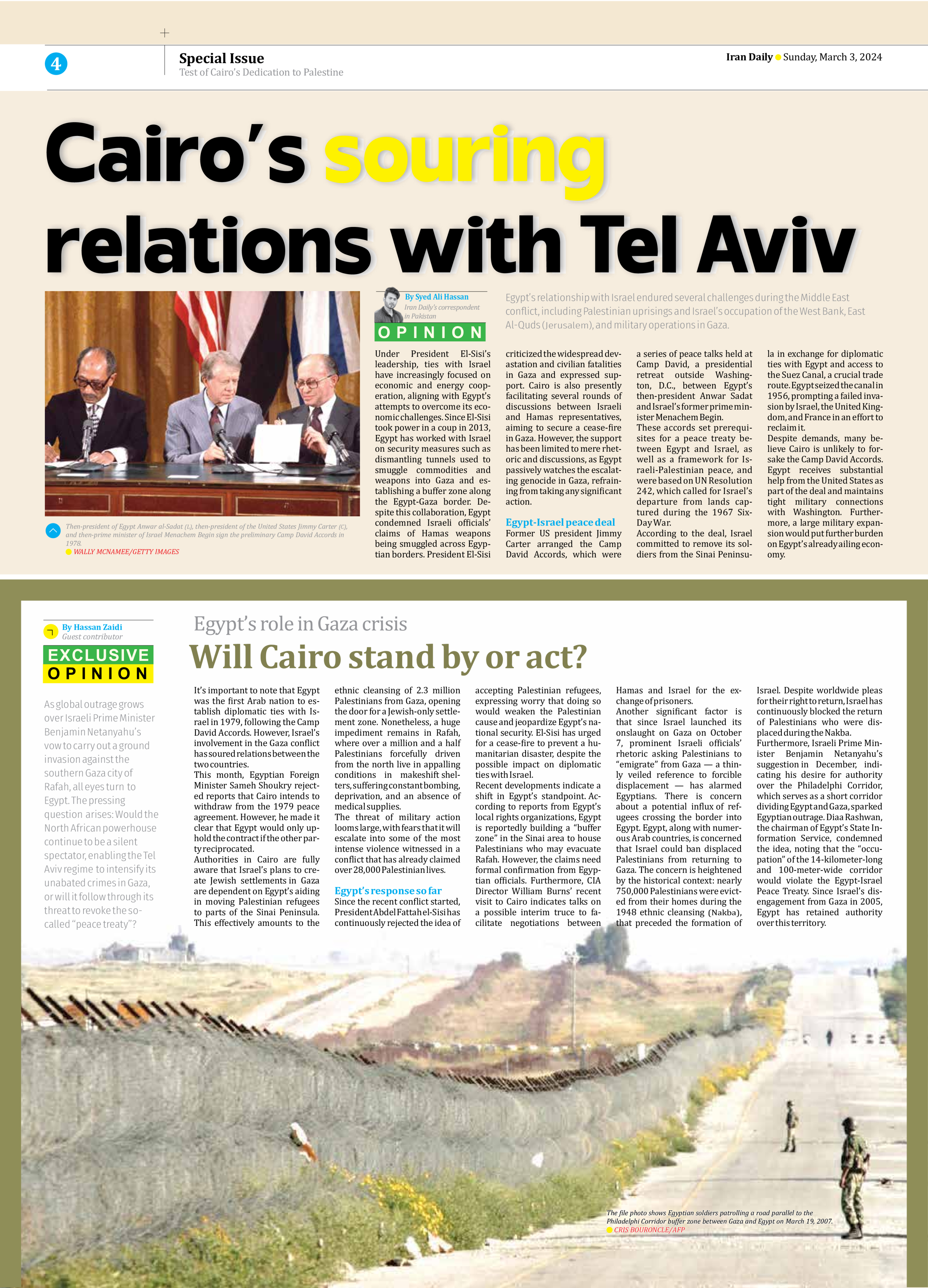
Cairo’s souring relations with Tel Aviv
By Syed Ali Hassan
Iran Daily’s correspondent in Pakistan
Egypt’s relationship with Israel endured several challenges during the Middle East conflict, including Palestinian uprisings and Israel’s occupation of the West Bank, East Al-Quds (Jerusalem), and military operations in Gaza.
Under President El-Sisi’s leadership, ties with Israel have increasingly focused on economic and energy cooperation, aligning with Egypt’s attempts to overcome its economic challenges. Since El-Sisi took power in a coup in 2013, Egypt has worked with Israel on security measures such as dismantling tunnels used to smuggle commodities and weapons into Gaza and establishing a buffer zone along the Egypt-Gaza border. Despite this collaboration, Egypt condemned Israeli officials’ claims of Hamas weapons being smuggled across Egyptian borders. President El-Sisi criticized the widespread devastation and civilian fatalities in Gaza and expressed support. Cairo is also presently facilitating several rounds of discussions between Israeli and Hamas representatives, aiming to secure a cease-fire in Gaza. However, the support has been limited to mere rhetoric and discussions, as Egypt passively watches the escalating genocide in Gaza, refraining from taking any significant action.
Egypt-Israel peace deal
Former US president Jimmy Carter arranged the Camp David Accords, which were a series of peace talks held at Camp David, a presidential retreat outside Washington, D.C., between Egypt’s then-president Anwar Sadat and Israel’s former prime minister Menachem Begin.
These accords set prerequisites for a peace treaty between Egypt and Israel, as well as a framework for Israeli-Palestinian peace, and were based on UN Resolution 242, which called for Israel’s departure from lands captured during the 1967 Six-Day War.
According to the deal, Israel committed to remove its soldiers from the Sinai Peninsula in exchange for diplomatic ties with Egypt and access to the Suez Canal, a crucial trade route. Egypt seized the canal in 1956, prompting a failed invasion by Israel, the United Kingdom, and France in an effort to reclaim it.
Despite demands, many believe Cairo is unlikely to forsake the Camp David Accords. Egypt receives substantial help from the United States as part of the deal and maintains tight military connections with Washington. Furthermore, a large military expansion would put further burden on Egypt’s already ailing economy.







